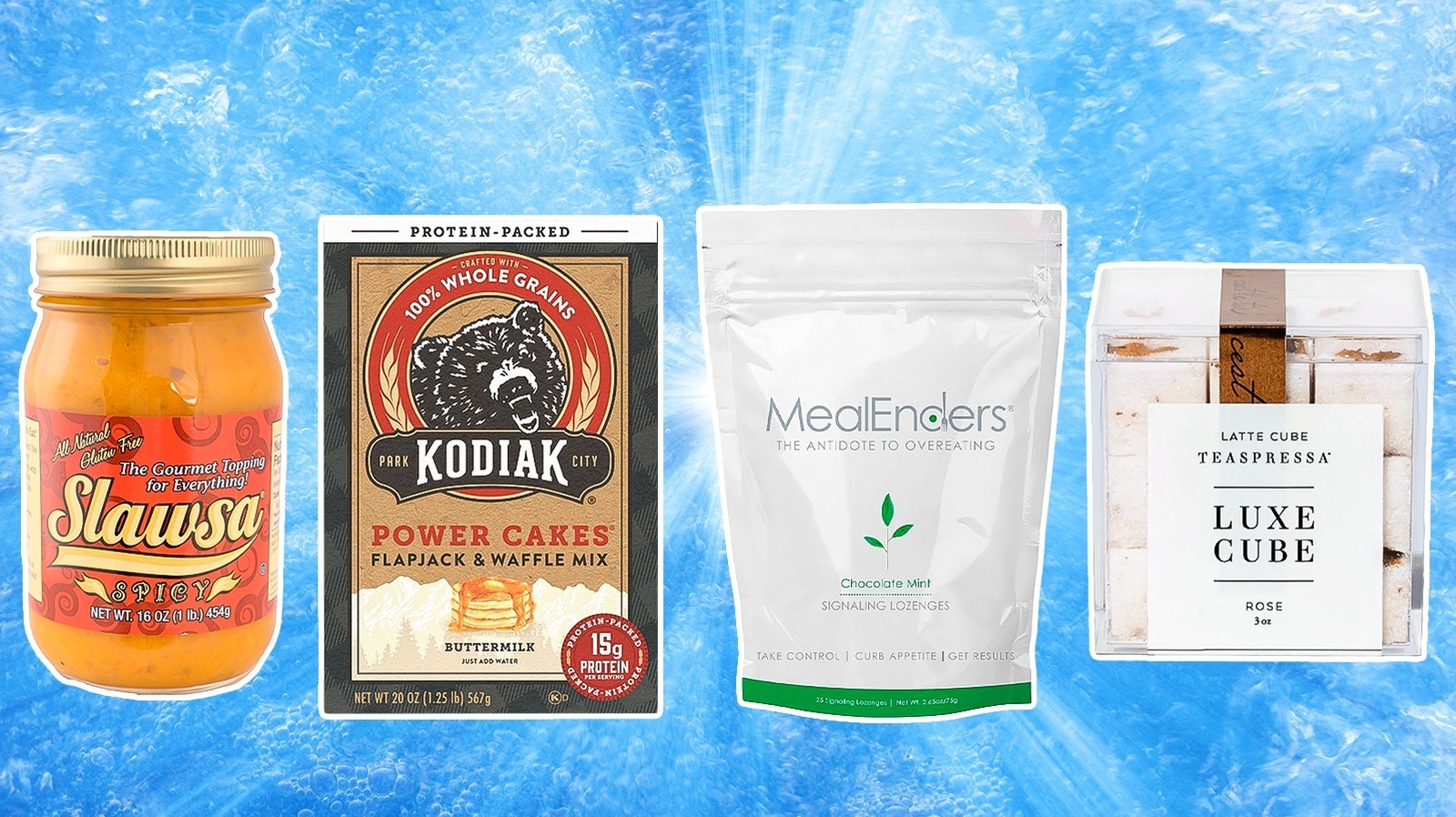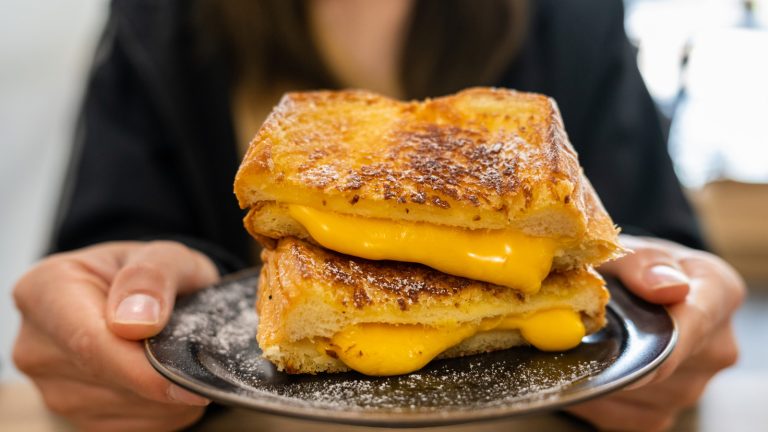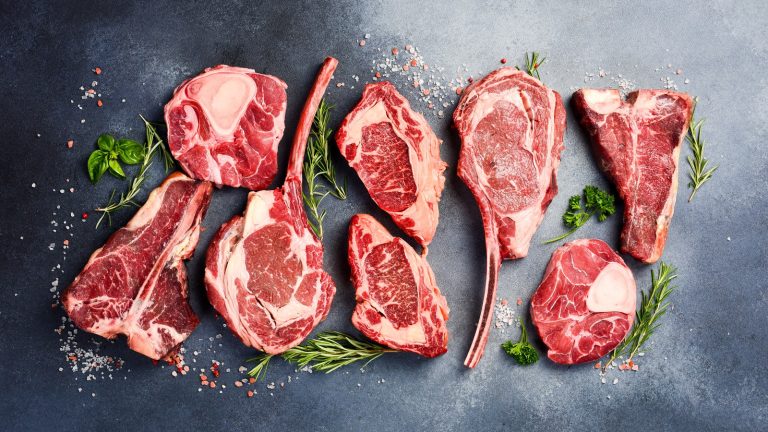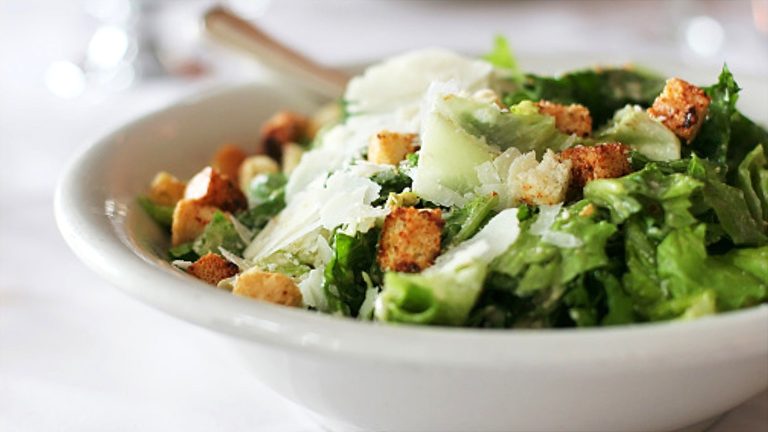We may receive a commission on purchases made from links.
Over its decade-plus duration, “Shark Tank” has birthed many legends. Think Poppi Soda, the prebiotic soda that has the manicured hands of every Hollywood A-lister wrapped around it. While the Sharks can be credited with turning everyday businesses into million-dollar legends, there have been several cases where they fumbled the ball.
Not every entrepreneur that steps on the carpet walks away with a deal — in certain cases, they walk out with something even better. Brands that appear on the show famously receive the “Shark Tank” glow-up and end up selling out their entire inventory with the publicity received from the show. Even when the Sharks fail to believe in an entrepreneur’s vision, the earnestness and raw emotions displayed in the tank move the viewers, who then take it upon themselves to spur brands on to success.
In the food and beverage aisle, many brands have defied the odds and taken the longer route to success, even without walking through the doors a Shark can open. Celebrity investors came flocking to Super Coffee, while Kodiak Cakes has Zac Efron sitting on its board member panel. There are plenty of fish in the sea, but the Sharks likely regret not reeling in these successful brands when they appeared on the show.
Super Coffee
Life as a college athlete can be strenuous, and the quest for a healthy energy drink pushed Jordan DeCicco to develop his own blend of organic coffee, protein, and coconut oil in a college dorm room. Convinced that he had struck something big, he founded Sunniva Super Coffee, which was later renamed to Super Coffee. When the brand arrived on “Shark Tank” it had the sales to back up its lofty ambitions. Having already raked in $600,000, it was projected to earn $2.1 million that year, but the Sharks weren’t biting.
The aftertaste of the coffee had Sharks Rohan Oza, Robert Herjavec, and Barbara Corcoran exiting, while Mark Cuban and Lori Greiner couldn’t get past their concerns with the high valuation. DeCicco and his two brothers eventually left the tank without a deal.
However, it wasn’t the end of the road for the brand. After renaming the company to Kitu Life, the brothers attracted investment from several celebrities, including Jennifer Lopez, Alex Rodriguez, and Patrick Schwarznegger, son of Arnold Schwarznegger. By 2020, Kitu Life had become the third most-popular ready-to-drink coffee in the country — trailing eagerly behind Starbucks and Dunkin’ — and touched $124 million in sales by 2022. What’s interesting is that if the Sharks had gone fishing with the brothers in 2018, one of the founders claimed they would have clocked in a 50x return on their investment by 2022.
Kodiak Cakes
The biggest success stories often start with a dream — and, in the case of Kodiak Cakes co-founder Joel Clark, a red wagon. But peddling his mother’s whole wheat pancake mix around the neighborhood in brown paper bags at the age of eight was just the beginning. When he arrived on the “Shark Tank” carpet along with co-founder Cameron Smith in 2014, the family recipe was slated to yield $5 million in sales for the year.
Despite the impressive numbers, the brand didn’t inspire a feeding frenzy. Kevin O’Leary remained skeptical about the brand’s future. “How much can you sell a $20 million commodity pancake business for?” he dismissed. While some offers did pour in from other Sharks, the two co-founders stood their ground and declined to give up a major chunk of their equity.
It was a call that would prove to be eerily intuitive. The brand didn’t just glide past the $20 million threshold O’Leary had predicted, but eventually clocked in over $200 million in sales. Having been acquired by L Catterton, a private equity firm, for an undisclosed sum in 2021, the brand has also attracted celebrity Zac Efron as its chief brand officer and board member. The former “High School Musical” star affirmed that he was impressed by the brand’s focus on wellness and wildlife conservation. “It feels like a food with a purpose,” he told Forbes.
CBS Foods
It isn’t every day that billionaire Mark Cuban expresses regret over passing up on a deal, but CBS Foods’ success trajectory isn’t exactly commonplace, either. When Shawn Davis — or Chef Big Shake, as he likes to call himself — arrived in the tank, he came armed with a mouthwatering assortment of shrimp burgers and $30,000 in sales.
However, Davis proved to be a shrimp swimming among the Sharks. Robert Herjavec had a hard time swallowing the $800 million valuation. “I love the shrimp, I hate the valuation. The company isn’t worth that today,” he interjected, while Barbara Corcoran’s aversion to shrimp had her stepping out as well. Without much joy to report from the other Sharks, Davis exited the tank with drooped shoulders but a head filled with dreams that wouldn’t end up unfounded.
Within a year after the episode had aired, the brand’s sales had surged to $5 million. Davis has since pivoted from selling frozen burgers in grocery stores to franchising his own chain, Big Shake’s Hot Chicken & Fish — and his success hasn’t gone unnoticed. One Shark in particular regrets not taking a bite of the deal. “He didn’t get an investment, but now he’s just killing it,” Mark Cuban raved in an interview. Cuban’s lack of experience in the food business held him back from making an offer, and today, Chef Big Shake is the one that got away.
Baker’s Edge
If you find yourself reaching for the brownies at the edge of the pan first, you aren’t the only one. Wising up to the need for a unique baking pan that offers crispy edges on every piece, entrepreneurs Matt and Emily Griffin designed a unique zig-zag pan with a sectional style that gives a crunchy edge to every brownie you slice from the pan.
The Griffins clearly weren’t the only ones coveting a crust in every bite, as they had sales of $5.8 million to report during their appearance on the show in 2014. While $1 million of this amount had come through the door after the brand received a nod on Oprah’s Favorite Things list, the sales appeared to have flatlined since, causing the Sharks to lose interest. Kevin O’Leary feared that the heat from the brownie pan had already burned out, the remaining Sharks didn’t appear piqued by the other products, and the couple left the tank without any offers.
However, the opposite of O’Leary’s dire admonitions would prove to be true when the brand’s similarly-shaped lasagna pan was featured on an episode of “The Expanse”. Sales apparently skyrocketed to such a level that the manufacturing unit broke its mold, stopping production of the pan. The brand was eventually acquired by Sorfeo, which has Mark Cuban listed as an investor. As fate would have it, the Griffins managed to catch one Shark with their bait, after all.
Blondie’s Cookies
Having baked cookies to make money during college, Brenda Coffman would eventually end up unlocking the key to a successful baking empire in the Midwest with her gourmet dessert shop, Blondie’s Cookies. With 12 locations across Indiana and Florida, the self-professed blondie appeared on the show seeking an investment as well as help with logistics and branding.
While the Sharks fell for the handcrafted cookies, the company’s valuation didn’t prove to be the icing on the cake. Kevin O’Leary was less than impressed with the ask for $200,000 in exchange for 3% equity, since the cookies didn’t have a proprietary element that was hard to replicate. The revelation of $800,000 in debt further soured the mood, and Blondie Coffman unfortunately had to part ways without a deal.
Perhaps taking the Sharks’ words to heart, the company opted for a change in direction after the show. Coffman chose to close the four new locations in Florida that had riddled the company with debt, and instead focused on opening the doors to a new production facility in her home state of Indiana. The addition of an online store and international shipping further helped beef up the sales. The company is reported to be generating an annual revenue to the tune of $8.8 million — far surpassing the $6.6 million valuation that had landed Coffman in hot water with the Sharks, but hey, that’s just the way the cookie crumbles.
Slawsa
What would happen if a slaw and a salsa had a love child? Entrepreneur Julie Busha bottled the answer and took it to “Shark Tank” with her brand, Slawsa. A cross between a coleslaw and salsa, the cabbage-based relish serves as the finishing touch for a wide array of everyday foods, whether used as a sandwich spread or as a dip for tortilla chips.
Busha appeared on the show seeking an investment for boosting production with projected sales of $500,000 for the year. However, the Sharks weren’t keen on joining her for the ride. Robert Herjavec wasn’t sold on Slawsa’s lack of spice and while Lori Greiner lauded her efforts, she didn’t feel a particular affinity for the Slawsa business. Kevin O’Leary was the last Shark to bow out, stating that he respected her passion for her work but couldn’t swallow her hefty valuation of a million dollars.
Despite being moved to tears, Busha left with her head held high and vowed to the camera, “It will happen.” Her determination has seen the product making its way into restaurants and stadiums along with garnering a strong presence in 8,000 locations. With an annual revenue of $5 million, the brand appears to have made it through the choppy waters even without a Shark by its side.
Teaspressa
As any coffee lover can attest, the jitters and crashes that follow after sipping on a strong cup of joe are less than optimal. Entrepreneur Allison DeVane couldn’t agree more. In her bid to give tea the espresso treatment, she founded Teaspressa to offer concentrated tea blends with the same levels of caffeine as a shot of espresso — sans the side effects.
The teas earned an approving nod from the Sharks, but DeVane’s business model fetched furrowed brows. In addition to selling loose leaf tea, the brand also had future plans for developing machines for brewing tea along with retail plans. Stymied by the lack of a clear direction on the future of the brand, the Sharks exited the conversation one by one.
Not having a helping hand from outside investors wasn’t easy, and DeVane was pushed to closing down the shops and changing the brand’s focus. The payoff came in the form of a healthier bottom line with the brand now pulling in an annual revenue of a million dollars. Fashion retailers such as Anthropologie have stocked its loose leaf tea in the past, and the brand’s tea and coffee kits can now be found at Nordstrom. The Sharks could have been along for the ride for an investment of as little as $50,000 but, as she puts it herself, “C’est la tea.”
Nootrobox
DeVane isn’t a lone ranger in her quest to reduce that post-caffeine crash, either. The road for entrepreneurs Michael Brandt and Geoffrey Woo, however, involved developing chewable coffee cubes to enhance cognitive functions, boost memory and alertness, and reduce caffeine-induced jitters.
But what did end up giving the Sharks jitters was the valuation: The co-founders stepped into the tank with a bold ask of $2,000,000 for 5% equity which tallied the company’s final valuation to a lofty $40 million. Robert Herjavec noted, “This is the highest valuation we have ever had on ‘Shark Tank’,” and Kevin O’Leary interjected, “For sugar cubes!” Brandt and Woo tried to tempt the Sharks into viewing the brand as the equivalent of Apple and to invest in their approach to technology rather than just a specific product. Unconvinced of the product’s long-term consequences, the Sharks sat out of the deal.
True to their word, the co-founders have been focusing their research on developing cognitive supplements. The chewable cubes were eventually axed from the lineup and the company rebranded itself to HVMN (pronounced “human”), and has since turned its focus to ketone supplements. The latter fetched them a lucrative $6 million contract with the U.S. Special Operations Command (USSOCOM) and the two co-founders now have an annual revenue of $16.6 million to keep their own energy soaring high.
Deux
Tired of taking fistfuls of supplements for her skin and immunity, Sabeena Ladha decided to develop nutrient-enhanced cookie dough with her brand, Deux. Swapping the usual suspects such as preservatives and refined sugars that lurk in most raw cookie doughs, she instead leaned into the virtues of oats, almond butter, flaxseeds, and coconut sugar.
The prospect of getting zinc from cookie dough — “The same amount of zinc as three pounds of chickpeas,” Ladha proudly declared — had the Sharks digging in with relish. But the copious amounts of calories packed in every serving left behind a bitter aftertaste. Most Sharks decided to swim elsewhere, but Robert Herjavec was tempted into making an initial offer of $300,000 for 15% equity. However, Ladha’s counter offers had him bowing out as well.
Walking out tall, Ladha decided to keep going, and it is a promise that she has made good on. The brand’s annual revenue ballooned quickly after the show and it was on track to rake in $5 million in sales by the end of 2022, according to Modern Retail. The brand has also found celebrity fans, and its jars pulled in a memorable cameo in the refrigerator of Paris Hilton. The brand is today rightfully counted among the best “Shark Tank” food products. While Ladha stepped down from the brand at the end of 2024 to focus on motherhood, the brand continues to flourish at 2,500 retail locations nationwide.
Doughp
The quest to make cookie dough even more exciting continues with Doughp, San Francisco’s first cookie dough bar. With 20,000 customers walking through its doors every month, the brand made its way to “Shark Tank” in the hopes of opening more storefronts.
While founder Kelsey Moreira posited that her ask of $450,000 for 10% equity was “Too doughp to pass up on,” the Sharks had other thoughts. Robert Herjavec, Lori Greiner, and Barbara Corcoran struggled with the lack of health consciousness within the product lineup, while the ambitious valuation didn’t bait the remaining Sharks either.
Moreira eventually left the tank without scooping up a deal and the hits didn’t stop coming, as a global pandemic lurked around the corner. With in-store operations grinding to a halt across the globe, she found herself forced to pivot to retailers. Within one year of its retail launch, the brand had burrowed its way deep into the shelves of Costco, Walmart, Target, and Kroger. Upgrading this store-bought cookie dough is, of course, easy with savory mix-ins. By 2022, the brand was sitting atop a sweet pie of $13 million in lifetime sales and the knowledge it could swim through the deep end even without a Shark by its side.
Surprise Cake
Knowing how to make a birthday cake is easy — especially if you have a round-up of chef-approved baking tips hidden up your sleeve. But it is also true that the world of cakes hasn’t witnessed much innovation. This was a wrong that Massachusetts-based mother and son duo, Liz Charm and Jordan Long, set out to right with Surprise Cake: a cake stand featuring a hidden compartment for stashing gifts.
American food safety laws prohibit inedible objects being placed directly within edible creations — the reason why Kinder eggs took forever to reach the U.S. Not willing to give up, Charm asked her industrial engineer son Long to conceptualize a cake stand integrated with a pop-out compartment. However, the future plans for adding pre-made cakes and curated gift pods to the brand weren’t received with much enthusiasm. The Sharks decided not to sugarcoat the truth about their misgivings and ultimately sat out of the deal.
So, what happened to Surprise Cake after “Shark Tank”? Following through on their vision, the brand now sells a range of 4-inch cakes for different occasions, from birthdays to graduation parties. By 2024, it was generating between $1-2 million in sales with an estimated net worth of $3.5 million. Despite not securing an investment from the Sharks, the mother-son duo ended up having their cake and eating it too.
MealEnders
What if you could curb untimely snacking with the help of a lozenge? This is the question that Mark Bernstein set out to answer when he founded MealEnders. Since overeating commonly occurs when the brain doesn’t receive a signal to stop eating, the lozenge offers up a sweet outer layer with a palate-cleansing core to halt cravings.
While the concept sounded promising on paper, the aftermath of the tingly core meant that the Sharks failed to cough up a deal. Kevin O’Leary compared the lozenges to a bad date — one that starts well but ends poorly. Mark Cuban was unimpressed by the low reorder rate, while Lori Greiner and O’Leary weren’t fans of the taste. Barbara Corcoran believed that the road ahead for the brand was cash-intensive and eventually, Bernstein left for home without a deal to keep him company.
The brand’s sales, however, received a glow-up after the episode aired and it raked in $5 million in the next year. Things were looking bright until the COVID-19 pandemic rang the death knell on its production capacities. While the brand has since ceased operations, founder Bernstein likely sleeps easy with the knowledge that it clocked in almost $9 million in sales over the course of its run.





